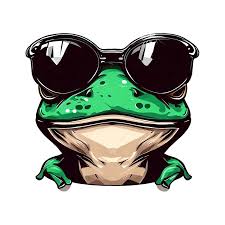
Professional Resume Writer, Rejume.in
Most Common Interview Questions for Freshers
Preparing for an interview can be daunting, especially for fresh graduates who may not have extensive experience with professional interviews. However, being well-prepared can make a significant difference in how you present yourself and your confidence level during the interview.
Here is a list of some of the most common interview questions that freshers are likely to encounter, along with tips on how to answer them effectively.
We took the position of a recent Computer Science, BCA or IT graduate and came up with what appropriate answers wold sound like in a real interview. As you read these sample answers over, you should get a general sense of how you can tailor these to your personal circumstances.

Most common fresher interview questions
1. Tell me about yourself
2. Why do you want to work for our company?
3. What are your strengths and weaknesses?
4. Describe a challenging situation you faced and how you dealt with it.
5. Where do you see yourself in five years?
6. Why should we hire you?
7. Do you have any questions for us?
1. Tell me about yourself
Tip: This question is often used as an icebreaker. Keep your answer concise and focused on your academic background, relevant skills, and any internship or project experience that relates to the job you are applying for. Avoid diving too deep into personal details.
Example Answer: "I recently graduated with a degree in Computer Science from XYZ University. During my studies, I completed internships at ABC Company where I worked on software development projects. I am passionate about coding and have developed strong skills in Java and Python. I am excited to apply my knowledge and skills in a professional setting."
2. Why do you want to work for our company?
Tip: Research the company beforehand and highlight what you admire about their products, culture, or mission. Align your career goals with what the company offers.
Example Answer: "I am impressed by your company's commitment to innovation and your recent advancements in AI technology. I want to be part of a team that is at the forefront of such cutting-edge developments. Additionally, I appreciate your company’s emphasis on employee development, which aligns with my goal to continuously learn and grow in my career."
3. What are your strengths and weaknesses?
Tip: Choose strengths that are relevant to the job and demonstrate how they make you a good fit. When discussing weaknesses, be honest but also mention steps you are taking to improve.
Example Answer: "My strengths include strong analytical skills and attention to detail, which have helped me excel in my academic projects. A weakness I have been working on is my tendency to take on too many tasks at once. I am learning to prioritize my workload better and delegate when necessary."
4. Describe a challenging situation you faced and how you dealt with it.
Tip: Use the STAR method (Situation, Task, Action, Result) to structure your answer. Focus on a situation that highlights your problem-solving skills and resilience.
Example Answer: "During my final year project, we encountered a major technical issue that delayed our progress. The software we developed was not integrating with the hardware as expected (Situation). My task was to identify and solve the problem (Task). I took the initiative to research similar issues online, consulted with my professors, and collaborated closely with my team to troubleshoot (Action). Eventually, we identified a coding error and corrected it, allowing us to complete the project on time and receive high marks (Result)."
The STAR method has been a popular choice among the interviewing population. If STAR feels daunting to you, you can also consider using the SBI model., which stands for Situation - Behaviour - Impact. The idea is the same as in STAR method, only a little bit more straight forward.
5. Where do you see yourself in five years?
Tip: Employers ask this to gauge your long-term interest in the role and the company. Align your career aspirations with the potential career path at the company.
Example Answer: "In five years, I see myself taking on more responsibility and perhaps leading a team of developers. I am eager to build my skills in software development and contribute to innovative projects at your company. I hope to grow within the organization and make a significant impact through my work."
6. Why should we hire you?
Tip: Summarize your strengths, relevant skills, and enthusiasm for the role. Highlight what makes you unique and how you can contribute to the company's success.
Example Answer: "You should hire me because I bring a strong foundation in software development from my academic background and internships. I am a quick learner, highly motivated, and passionate about technology. My problem-solving skills and ability to work collaboratively will allow me to contribute effectively to your team."
7. Do you have any questions for us?
Tip: Always have a few questions prepared. It shows your interest in the role and the company. Ask about the team you will be working with, company culture, or future projects.
Example Answer:
- "Can you tell me more about the team I would be working with?"
- "What are the key challenges the team is currently facing?"
- "How does the company support professional development and growth?"
Conclusion
Preparing for these common interview questions can significantly boost your confidence and performance during an interview. Remember to tailor your answers to the specific job and company, and practice delivering them in a natural and engaging manner.
Good luck!